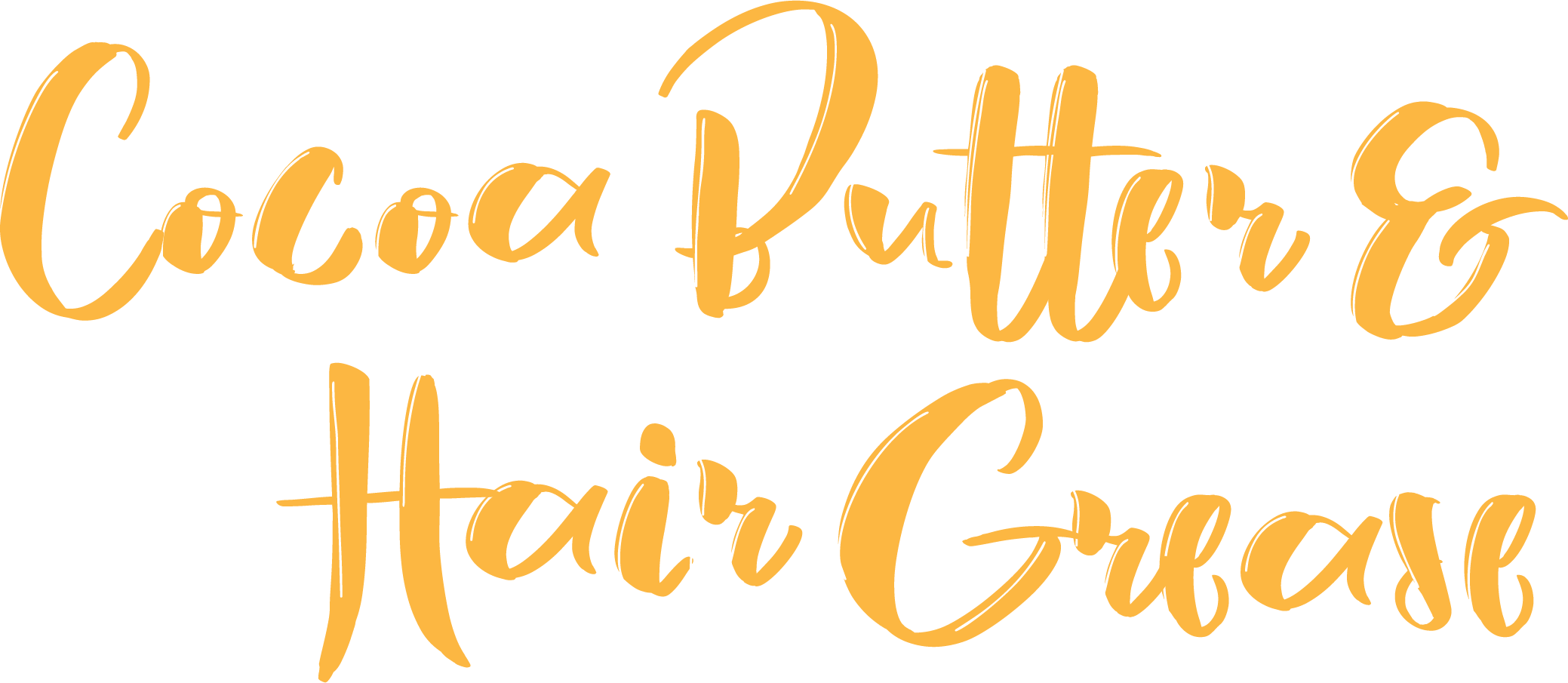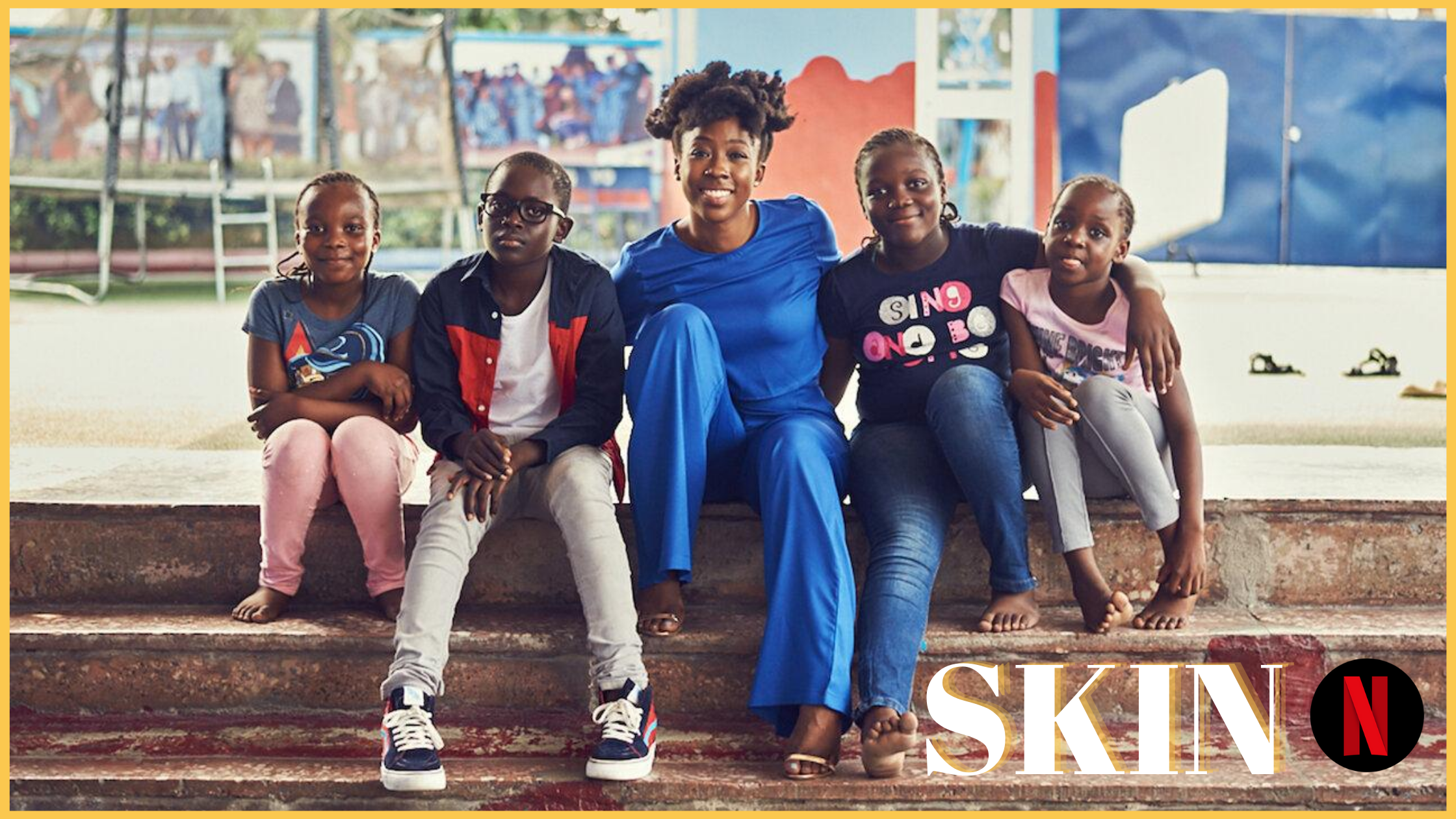Thoughts on SKIN
By: Dr Donna Oriowo
So, anyone that knows me knows that I have a special place in my heart and in my schedule for documentaries. I like learning from someone else's point of view. I enjoy the story and the way they weave their personal shit with what can feel entirely less personal.
Watching the documentary Skin on Netflix was such a personal experience in some ways and so removed in others. I am a first generation born in America, Nigerian American. I will never lose one for the other because both of these identities have greatly shaped me as I am today and allow me to do the work therapeutically--sex therapist focusing on colorsim and texturism-- that I do. Aside from enjoying how SKIN ripped apart the coded language often used to describe bleaching--including tone, brighten, whiten, etc, --watching SKIN felt like someone was telling on me, telling on my family. By family I mean more than my immediate, I really mean the countless men and women I grew up knowing who became family because of shared meals, laughs, and a history. SKIN felt like it laid bare something that is not often discussed when conversations of skin bleaching, toning, or brightening happen, it put Nigeria back on the map as a place where this happens, often enough for it to be considered mundane.
Oftentimes, when people think of the skin bleaching industry, we first think of India. Considering that we have been talking about Fair & Lovely, and how they are changing the name but not the product, that makes complete sense to me. This is what we know and something that, in many ways, India has become known for, caste systems so deeply engrained with colorism and capitalism, there isn’t a way around it. I also get that folk don’t generally spend a lot of time thinking about Africa as a whole. Even in food competitions that show food from around the globe, African nations are almost NEVER represented. I guess we don’t eat. Let’s take that further, Americans are not conditioned to think about Africa as a place that has value outside of how Americans can benefit from the continued raping of that land. All this to say that we are hella Eurocentric and def hella grown in “America first” concepts. It is a wonder we know about the bleaching that happens there at all.
For some folk, watching SKIN, it may be surprising to learn that Nigeria leads the world in the use of skin bleaching creams, with 77% of women using or having used it (Anekwe, 2014; Hoskins, 2014; Iyer-Ahrestani, 2014). Or to make that more useful to me, out of the 10s of aunties I have and admire, at least 7 out of 10 would have used bleaching creams.
Now that I am older and more privy to some of the tea, I have learned that indeed many aunties of mine have dipped their fingers into the tub of white goo which promised a better life for daily use. One of my aunts, who I saw maybe a year or so ago, I didn’t even recognize her at a party, she was so much lighter than I remembered her. This aunt also has 3 daughters. 3 young impressionable minds who look to her to know what they will look like, to know what is beautiful and acceptable, and what they should do in order to be acceptable also.
One interviewee in SKIN talked about what she assumed was a universal desire by dark skinned female children- to be light at some point in their lives in order to have the attention from friends, boys, family, and beyond. This is where they began to put all my business in the street.
I distinctly remember thinking that having lighter skin would make my life easier. I distinctly remember having a desire to be light or to be associated with it in some way. I remember wondering if I simply wasn’t clean enough. Many of the interviewees talked about learning to love their skin tone later in their lives, but how it can be very hard to constantly hear about how you aren’t good enough or how you will not be worthy. This also felt like a close-to-home hit. The love of my skin tone developed overtime, but certainly later in life. I think being at a whole HBCU helped, but my dissertation work on texturism solidified it.
However, a lack of love for one's darker skin tone makes sense when you think about the rhetoric that is applied when we are talking about dark versus light. Darkness and dark skin is often associated with being sinister, evil, death, unworthy, mean, nasty, undesirable, unsafe. Light is associated with healing, love, purity, desirability, and all things good, even God herself. When these are the associations given to children before they can even learn to talk, and especially before they learn to think for themselves, how could this not have an impact? This is why learning to love yourself is a concept reserved for later life and often later generations, because we have grown in the world which says we were unworthy from the time we took our first breath if the skin color wasn’t “light, bright, and toned.”
Why Write This?
My main purpose in writing this piece in particular is because I don’t want it to ever be forgotten that colourism (colorism) is a worldwide phenomenon with worldwide impacts and implications. I am writing this because we don’t often follow the money trail and hold companies accountable. To see that Fair & Lovely is being called out, especially in India brings me great joy. To see how Unilever is being held accountable, even marginally also brings me joy. But to see that we don’t think about them as the parent company of Dove, who has made more than a few faux pas themselves with regard to color and race, is disheartening. I am not saying Dove is not separate, in some ways, I am saying that Unilever gets to play both sides of selling bleaching creams around the globe, while telling Black Americans to love themselves, their skin tones, and their hair textures, and dip their hand in the financial pot twice. I think of this shit as being wholly ironic and silly. I think we place too much faith in white owned companies to do the right thing for the sake of doing the right thing. I think we see having a seat at the table as white folk inviting us to talk and then allowing them to turn around, after years of ignoring us or hurting us, to sell us products “made for us” and we take that shit as a win.
I personally don’t feel like I have won. The skin bleaching industry is still making hella dollars, it is a $10 billion dollar industry off of an insecurity that white supremacy has made necessary.
Recommendation
While this is by no means the best documentary I have ever seen, it is one that broadens the conversation of colorism away from American imperialism. The rawness of the film makes it, to me, feel that much more personal. It draws you in and is filmed in such a way that you feel like if you just asked the same or similar questions, you too, could have created it. It brightens and tones the conversation and reminds us that this beast is way bigger than just here. I definitely suggest watching it and turning to your family for some tough conversations..when you’re ready. You can always start with your own work first, till then.

